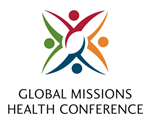Serving Orphans and Vulnerable Children with Dignity
Among the poor and the vulnerable, children are the most vulnerable and needy. Several responses have been implemented to serve orphans and vulnerable children, including adoptions, orphanages, child sponsorship, and various children-focused programs. This session will review some of these, share some lessons learned, and highlight some best practices and principles from several African countries and the Caribbean. Examples of dignifying and non-dignifying interventions attempting to address this growing need will be shared.
Related Content






Comments